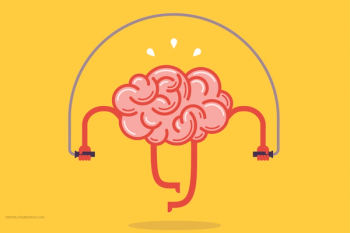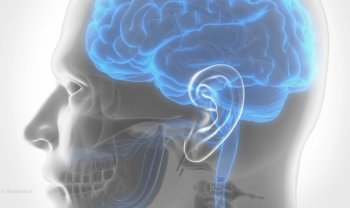
To help build a stronger community support system and strategy around mental health, here are three tips for managed care organizations.

To help build a stronger community support system and strategy around mental health, here are three tips for managed care organizations.

Increasingly, healthcare organizations are relying on information technology (IT) solutions to increase the reach-and efficacy-of healthcare. Here’s how technology can help mental health, too.

Suicide rates are rising-but healthcare organizations can help facilitate their suicide prevention efforts by relying on the right care coordination teams.

Healthcare executives must understand mental health laws so they can do the right thing by their patients-and protect their bottom line.

Mental and substance abuse disorders account for a large chunk of America’s healthcare costs. Find out which of these diseases are the most costly.

Major depression diagnoses have risen, according to a study of medical claims by the Blue Cross Blue Shield Association. Find out which populations suffer the most.

Ball State University study: A severe shortage of mental health professionals in rural areas, as well as opioid and drug problems, is a major concern.

ACA repeal or replacement must focus on how to preserve mental health services and pharmacy access.

Within our healthcare-driven society, the increase in the identification and diagnosis of mental illnesses has led to a proportional increase in the prescribing of psychotropic medications. The prevalence of mental illnesses and subsequent treatment approaches may employ monotherapy as first-line treatment, but in many cases the use of combination of therapy can occur, leading to polypharmacy.1 Polypharmacy can be defined in several ways but it generally recognized as the use of multiple medications by one patient and the most common definition is the concurrent use of five more medications. The presence of polyharmacy has the potential to contribute to non-compliance, drug-drug interactions, medication errors, adverse events, or poor quality of life.

A review of drug therapies and research presented at the 2012 Scientific Session of the American Diabetes Association.

A review of drug therapies and research presented at the 2012 Annual Meeting of the American Psychiatric Association

More than half of Medicare claims for atypical antipsychotic drugs are erroneous, amounting to $116 million, according to a 48-page report released May 4 by the Office of the Inspector General.

FDA recently announced that the 'Pregnancy' sections of labeling for all antipsychotic medications will now have to include wording about the potential risk for extrapyramidal side effects and withdrawal symptoms in newborns whose mothers were treated with these drugs during the third trimester of pregnancy.

Patients using brand-name or generic antidepressant medications to treat major depressive disorder have similar drug discontinuation rates and accrue comparable healthcare costs during the first 6 months of treatment, according to a study published in March 2011 in the Journal of Managed Care Pharmacy.

The rate of decline in the use of atypical antipsychotics in outpatients with dementia accelerated following a black box warning by FDA, according to a multicenter study of national Veterans Affairs data.

FDA has approved vilazodone HCl tablets (Viibryd, Clinical Data) for the treatment of adults with major depressive disorder.

FDA has approved Lisdexamfetamine dimesylate (Vyvanse, Shire) capsules CII for the treatment of ADHD in adolescents aged 13 to 17 years.

New formulation: Guanfacine extended-release tablets (Intuniv) were approved on September 2, 2009, for the treatment of attention-deficit/hyperactivity disorder (ADHD)

Lundbeck and Solvay have announced that they are discontinuing development of bifeprunox for the maintenance treatment of schizophrenia.

Initiation of antipsychotic therapy associated with hyperglycemia in older diabetic patients

A matched, case-control analysis demonstrated an association between the use of stimulant medications (used to treat attention-deficit/hyperactivity disorder [ADHD]) and sudden unexplained death in children and adolescents.

Agents in late-stage development for the treatment of depression and generalized anxiety disorder

Second-generation antidepressants generally have equivalent efficacy, according to a review published in the Annals of Internal Medicine. Although these agents demonstrate similar response rates, differences in onset of action or side effects may affect prescribing decisions.

In a nested, case-control study published in the Archives of General Psychiatry, investigators observed that the use of selective serotonin-reuptake inhibitors (SSRIs) increased the risk of upper gastrointestinal (GI) tract bleeding; this increased risk was also observed with the serotonin and norepinephrine reuptake inhibitor (SNRI) venlafaxine. This risk may be increased when the agents are used concomitantly with nonsteroidal anti-inflammatory drugs (NSAIDs) and decreased when used concomitantly with acid-suppressing agents.

Iloperidone, a new-generation atypical antipsychotic, is currently under investigation for the treatment of schizophrenia. In 4 separate phase 3 trials, iloperidone has demonstrated efficacy in treating schizophrenia, with total Positive and Negative Symptom Scale (PANSS) scores decreasing by a range of 8 to 14 points depending on the iloperidone dose.